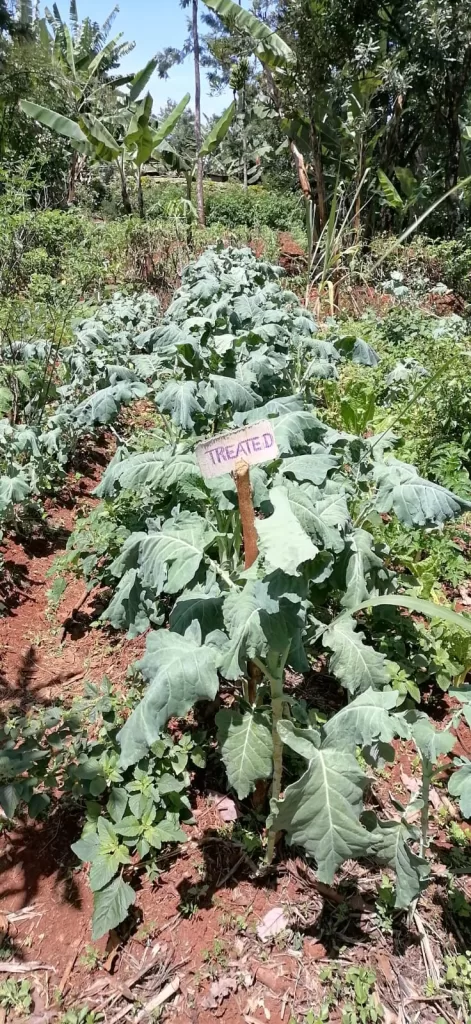
In Kenya, smallholder farmers are the heart and soul of agriculture. They cultivate the food that nourishes communities, yet they often face challenges that limit their productivity and environmental impact. Sustainable agriculture practices offer a solution, promoting long-term soil health, increased yields, and a more resilient future for farmers and the environment.
Profama is a champion for smallholder farmers, committed to equipping them with the knowledge and resources they need to thrive. Sustainable practices are at the core of our approach. We believe empowering farmers with these techniques can create a win-win situation for food security, environmental health, and farmer livelihoods.
The Need for Sustainable Agriculture
Traditional farming methods can deplete soil nutrients, lead to water scarcity, and contribute to climate change. Sustainable agriculture offers a path forward, promoting practices that:
- Maintain Soil Health: Healthy soil is the foundation of productive agriculture. Sustainable practices like crop rotation, cover cropping, and compost application nurture soil life, improve water retention, and enhance long-term fertility.
- Conserve Water: Water scarcity is a growing concern in Africa. Techniques like drip irrigation, rainwater harvesting, and mulching optimize water use efficiency, ensuring crops receive the moisture they need without waste.
- Reduce Reliance on Chemicals: Excessive use of chemical fertilizers and pesticides can harm the environment and human health. Sustainable practices promote organic alternatives like biofertilizers and natural pest control methods, minimizing reliance on harmful chemicals.
- Promote Biodiversity: Monoculture farming practices can disrupt ecosystems. Sustainable agriculture encourages planting diverse crops and integrating natural habitats, fostering healthy biodiversity and supporting natural pest control mechanisms.
- Combat Climate Change: Sustainable practices like reduced tillage and improved carbon sequestration in the soil contribute to mitigating climate change.
Profama: Empowering Sustainable Practices for Smallholder Farmers
Profama equips smallholder farmers with the knowledge and resources to adopt sustainable practices. Here’s how we make a difference:
- Training and Education: We offer comprehensive training programs on various sustainable practices, including soil management, water conservation techniques, organic pest control, and crop diversification. This empowers farmers to make informed decisions for their land.
- Resource Provision: Profama facilitates access to essential tools and resources for sustainable farming. These may include providing high-quality compost, promoting drought-resistant seeds, and introducing affordable drip irrigation systems.
- Technical Assistance: Our team of agricultural experts provides ongoing technical support to farmers as they implement new sustainable practices. This ensures they overcome challenges and achieve success.
- Market Access: We connect farmers who adopt sustainable practices with premium markets that value eco-friendly production methods. This incentivizes sustainable farming and provides farmers with better returns on their investment.
The Benefits of Sustainable Agriculture with Profama
By adopting sustainable practices with Profama’s support, smallholder farmers experience a multitude of benefits:
- Increased Yields: Sustainable practices improve soil health and resource management, leading to healthier crops and potentially higher yields.
- Reduced Costs: Lower reliance on chemical inputs and efficient water management techniques can significantly reduce smallholders’ farming costs.
- Improved Market Access: Consumers increasingly seek food produced using sustainable agriculture practices. Profama connects farmers to these markets, allowing them to command premium prices for their produce.
- Environmental Stewardship: By adopting sustainable practices, farmers become stewards of the environment, ensuring healthy soil, clean water, and a sustainable future.
- Resilient Livelihoods: Sustainable practices equip farmers to adapt to changing weather patterns and resource availability, fostering long-term agricultural success and food security.
Examples of Sustainable Practices with Profama:
- Case Study 1: In collaboration with a local research institution, Profama introduced a program promoting leguminous cover crops in a specific region. These nitrogen-fixing plants enriched the soil, reduced the need for chemical fertilizers, and increased yields for participating farmers.
- Case Study 2: Profama partnered with a microfinance institution to offer small loans for purchasing drip irrigation systems. This enabled farmers to conserve water, improve crop water use efficiency, and increase their yields during drought.
Join Us in Building a Sustainable Future
Profama is actively seeking partners and individuals who share our commitment to sustainable agriculture practices and empowering smallholder farmers. Here are ways you can join us:
- Become a Partner: Organizations with expertise in sustainable agriculture can collaborate with Profama to expand their reach and impact.
- Volunteer your Expertise: Share your knowledge by volunteering as a trainer or mentor on sustainable practices for our farmer programs.
- Spread Awareness: Help raise awareness about the importance of sustainable agriculture and the role often

